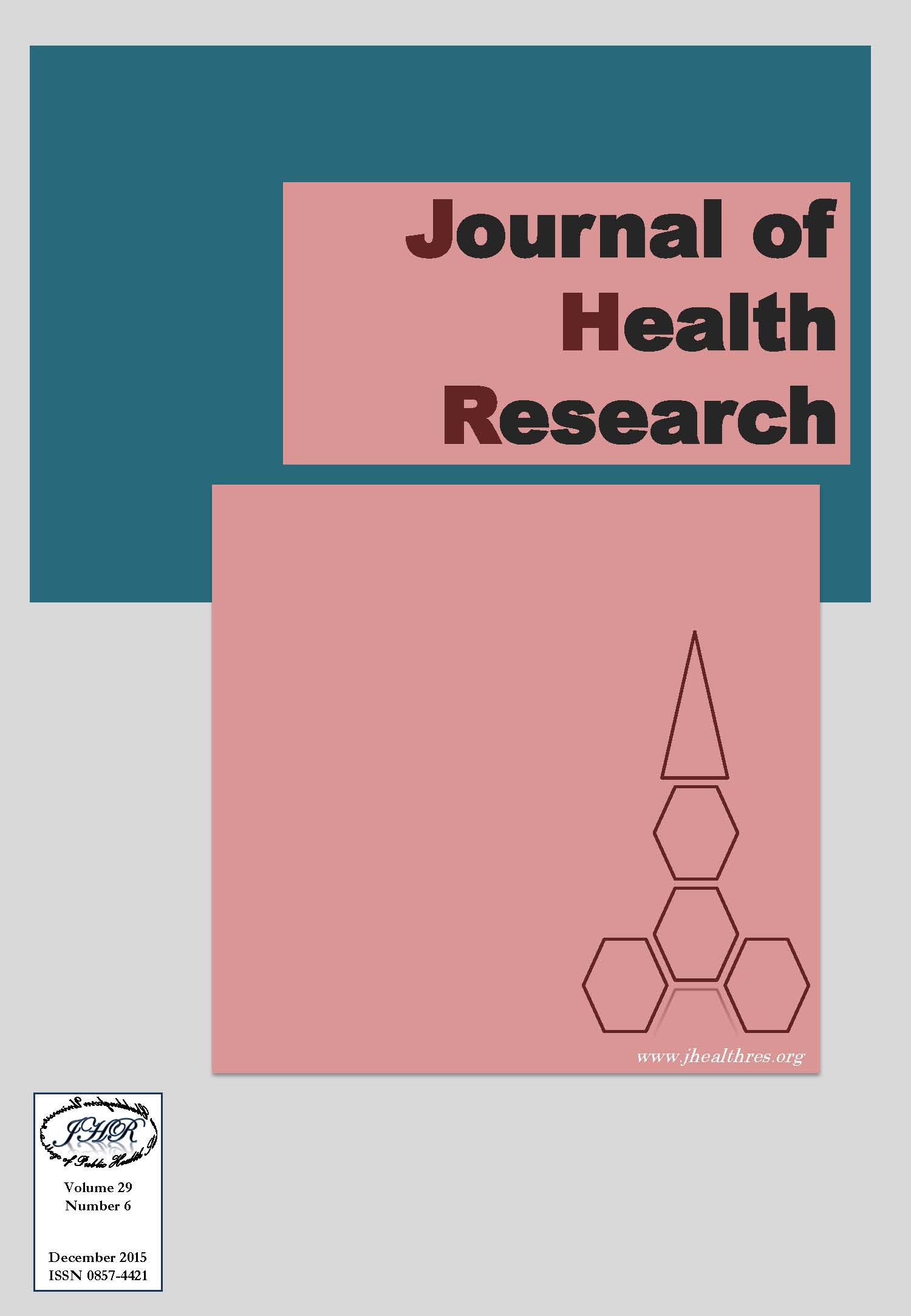Factors Influencing Urban Adolescents’ Eating Behavior, Ratchaburi Province, Thailand: an Application of the Theory of Planned Behavior
Keywords:
Eating behavior, Theory of Planned Behavior, Urban adolescents, ThailandAbstract
Background: Cardiovascular disease (CVD) has been the leading cause of premature death in adults in Thailand. Promoting healthy eating in adolescents is one way of helping to maintain health and lower risk of CVD in later life. This quantitative study aimed to identify the factors influencing urban adolescents’ eating behavior, so that they could be used in the future to improve and promote a healthy eating intervention program.
Methods: The theory of planned behavior (TPB) was used as the theoretical framework to identify factors influencing adolescents’ eating behavior and dietary intake. One hundred and eighty four urban adolescents from public high schools in Ratchaburi Province, Thailand were recruited to complete the Thai Eating Questionnaire (TEQ) developed based on the TPB. It included a brief food frequency questionnaire (FFQ). Stepwise regression analyses were undertaken with SPSS software to assess how well the variables of the TPB predicted eating intention and behavior.
Results: Urban adolescents’ eating behavior was predicted by perceived behavioral control (PBC) (R2=.050), while no association was found between eating intention and eating behavior. Urban adolescents’ eating intention was together predicted by attitude toward eating behavior, and subjective norm regarding eating behavior (R2=.274). Whereas attitude toward eating behavior predicted 24% of the variance (p<0.001), and subjective norm regarding eating behavior add another 3% (p<0.005).
Conclusions: This study supports the application of the TPB to the prediction of eating intention and eating behavior among urban adolescents. The results indicate that urban adolescents would benefit from interventions designed to increase facilitator-based and self-efficacy opportunities, as well as decreasing barriers to healthy eating.






